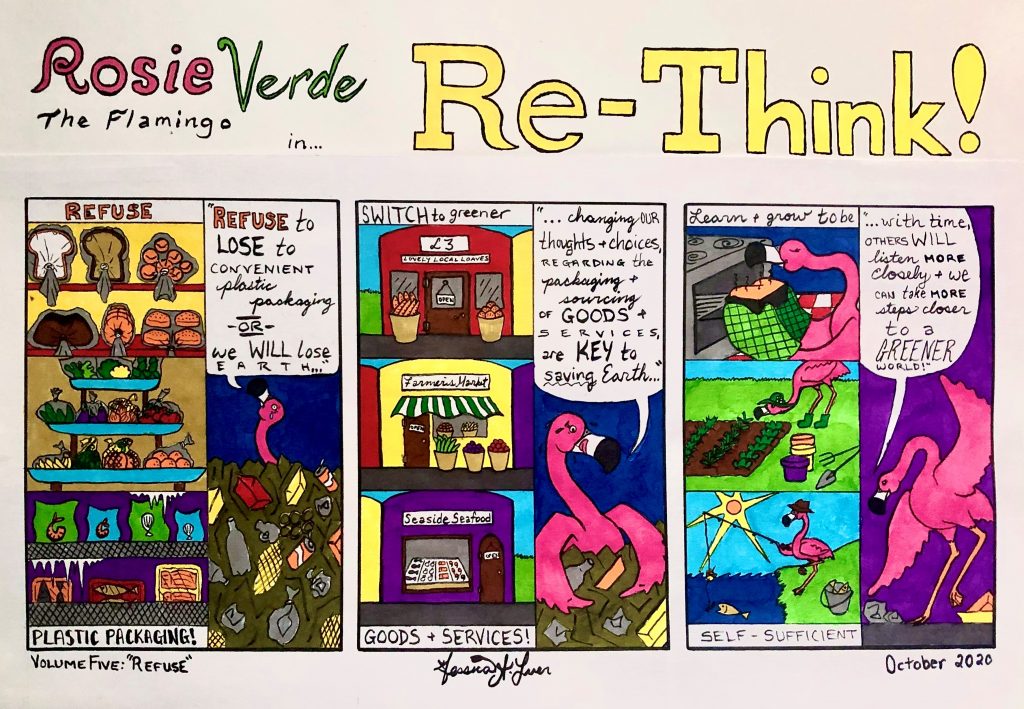By Jessica A. Luer
BFA Studio Artist and MBA of Sustainable Procurement
Volume Five: Refuse

Just because and item is ‘convenient’ to you does not mean it is ‘convenient’ to the planet. In fact, most manmade items that contribute to easy-access marketing strategies hurt the planet’s well-being the most. The biggest culprits are wasted plastics (namely packaging and microplastics), which is also one of the main contributors to global warming in terms of its production and manufacturing processes.
Knowing this sad fact, a plethora of counteractions have surfaced to lessen the environmental damage; however, they all stem from three main levels that emphasize alternatives to purchases of single-use materials.
- Basic Refusal: Refusing the purchase of products and services that use plastic materials or use plastic packaging. There are now ethical and affordable packaging substitutes available if packaging is required in terms of safety, omit packaging entirely if it is solely for displaying or marketing purposes. This initial selective behaviour encourages the businesses and the public to adapt to the demand for less plastic processing.
- Intermediate Refusal: Switching from shopping at corporate businesses to smaller local businesses. These smaller businesses often sell items with significantly less involvement with plastic, and more often have safer products and services with more care to quality over convenience. Supporting them and boycotting the larger stores astronomically benefits the local economy and social structure as well.
- Advanced Refusal: Learning to be more self-sufficient by making the products from scratch and by doing so grow personal skills. Gathering the rawest materials or ingredients from the local businesses (urban or rural) in order to make the original sought-for products not only reduces temptation to purchase convenient plastic-packaged items, but also drops overall shopping costs, increases knowledge capacities and ultimately the quality per homemade item. These actions of course come with plenty of practice and will eventually transform into skilled hobbies such as crafting, sewing, upcycling, cooking, baking, gardening, hunting, farming, and fishing. Matter of fact, those specific hobbies are some of the best life skills to hone when choosing to become more self-sufficient and the scale of each can easily adapt to most living circumstances.
Refuse to lose to convenient plastic packaging or we will lose the Earth. Changing our thoughts and choices regarding the packaging and sourcing of goods and services, are key to saving Earth. With time others will listen more closely, and we can take more steps closer to a greener world.
2020

